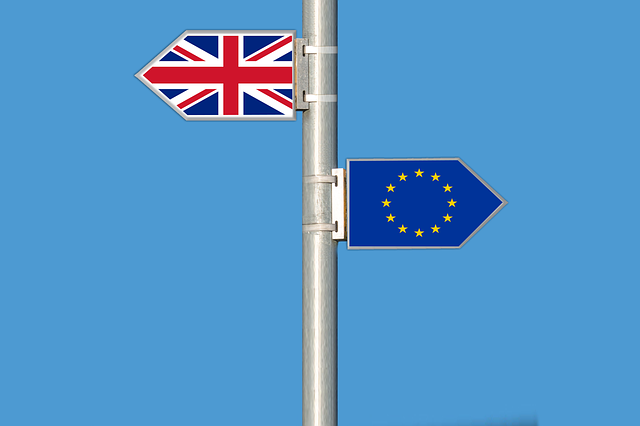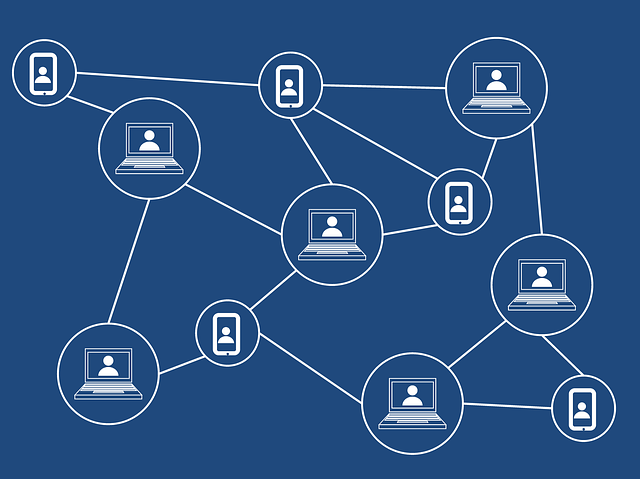Blockchain- A solution for a never ending Brexit

Brexit- the most popular word of 2019
If you been looking at the news over the past year you would have probably seen that Brexit has been a bit of a disaster. Not surprising, considering the situation replicates that of a tough divorce. Brexit has left a lot of uncertainty in the UK and around Europe understandably. One major issue that is preventing a withdrawal agreement being passed through parliament is the disagreement about the customs union. For those of you that don't know what a customs union is (I didn't either until it was banged on so much that I eventually looked it up), it's basically where all European states have an agreement that there are no tariffs (taxes) on goods internally within the member states.
That sounds great so where's the problem?
The problem is that if the United Kingdom was to still participate in the customs union this prevents negotiation of trade deals outside the member states. As the EU does all the negotiating on external tariffs on behalf of everyone, not every MP in parliament is too happy jumping back into the customs union because Brexit promised that the UK could do trade deals with everyone and their pet. Now obviously, leaving the customs union (which is the UK's biggest exporter), would be very costly for both the UK and the EU so no one really wants to leave without a trade deal but as there's not much compromise yet, it's getting quite scary for businesses.
Is there a current solution?
To answer the question, not really. There have been ideas such as collecting EU tariffs on the EU's behalf and then companies claiming back the difference if the goods do not leave the UK (Morris, 2018). Confusing right? This also creates more bureaucracy and an increase in costs for both the UK government and businesses. It's almost like a step back in terms of efficiency.
This is where Blockchain could save the day. Well just like Bitcoin hitting 1 million we can hope...
Is Blockchain the solution for Brexit?

The issue that Brexit puts on both the EU and UK customs borders is that all goods have to be declared, ensure standards and regulations and that illegal and counterfeit goods do not enter their country (Reply, 2018). With the uncertainty of Brexit and in worst case 'no deal', this could be a nightmare.
How can Blockchain fix this?
Now the politics behind the trade relationship with the EU and UK, blockchain cannot fix. But it provides the ability to track goods along the supply chain which can fix some major issues, could improve efficiency and save money. By a product being produced and then attaching a unique identifier to a smart contract on a blockchain with information such as when it was produced, records of transaction. This provides custom officers with the ability to see the whole history of where the product has been produced and could mean that they don't have to check as many goods at the border.
You then get the issue of cloning unique identifiers. Combined with other technology such as 3D printing there is a possibility that along with blockchain, the labels would be nearly impossible to counterfeit and the whole history (alongside other information) is accessible via scanning it on the distributed ledger. In theory, this means that there wouldn't be a need to have extensive customs checks for goods as the products could be scanned and checked once they arrive to the business that ordered them. This could save time and money and speed up the delivery of goods. Blockchain almost creates a customs network rather than actually having a physical customs union.
Smart contracts could also be used to pay automatically between the supplier and the buyer once the goods have arrived. If the goods are late, there could be an agreement placed within the smart contract that provides compensation or a discount for the business (Reply, 2018). There are so many possibilities with blockchain and smart contracts on how it could improve productivity.
Conclusion
As I mentioned previously, this does not fix the issues behind the politics of the UK and EU's trade relationship, so it's questionable if this solution is the best one out there. But what it does show the potential the technology can do to improve business. It makes you question is there a need for a customs union? Will blockchain provide security and free trade for everyone in some kind of customs network? What I do know is that it's a much better idea for friction-less trade than the current solutions the members of parliament have come up with.
References
- Morris. C, (2018), Why is the customs union so important?, BBC News, Available at:(https://www.bbc.co.uk/news/uk-43871319)
- Reply, (2018), Blockchain for Brexit, Available at: (https://www.reply.com/en/Shared%20Documents/Blockchain-for-Brexit.pdf)
This is so true.
Posted using Partiko iOS
Congratulations @yapps! You have completed the following achievement on the Steem blockchain and have been rewarded with new badge(s) :
You can view your badges on your Steem Board and compare to others on the Steem Ranking
If you no longer want to receive notifications, reply to this comment with the word
STOPTo support your work, I also upvoted your post!
Vote for @Steemitboard as a witness to get one more award and increased upvotes!
@yapps, thank you for supporting @steemitboard as a witness.
Click on the badge to view your Board of Honor.
Once again, thanks for your support!
good article but within a few years or up to 5 yrs at the most there will be no such thing as the EU.
i for one cant wait for it
personally i will be very surprised if the EU is around in five years
You have been flagged. Your post is still 100% visible on the Steem blockchain. Stop whining, you are not entitled to anything.